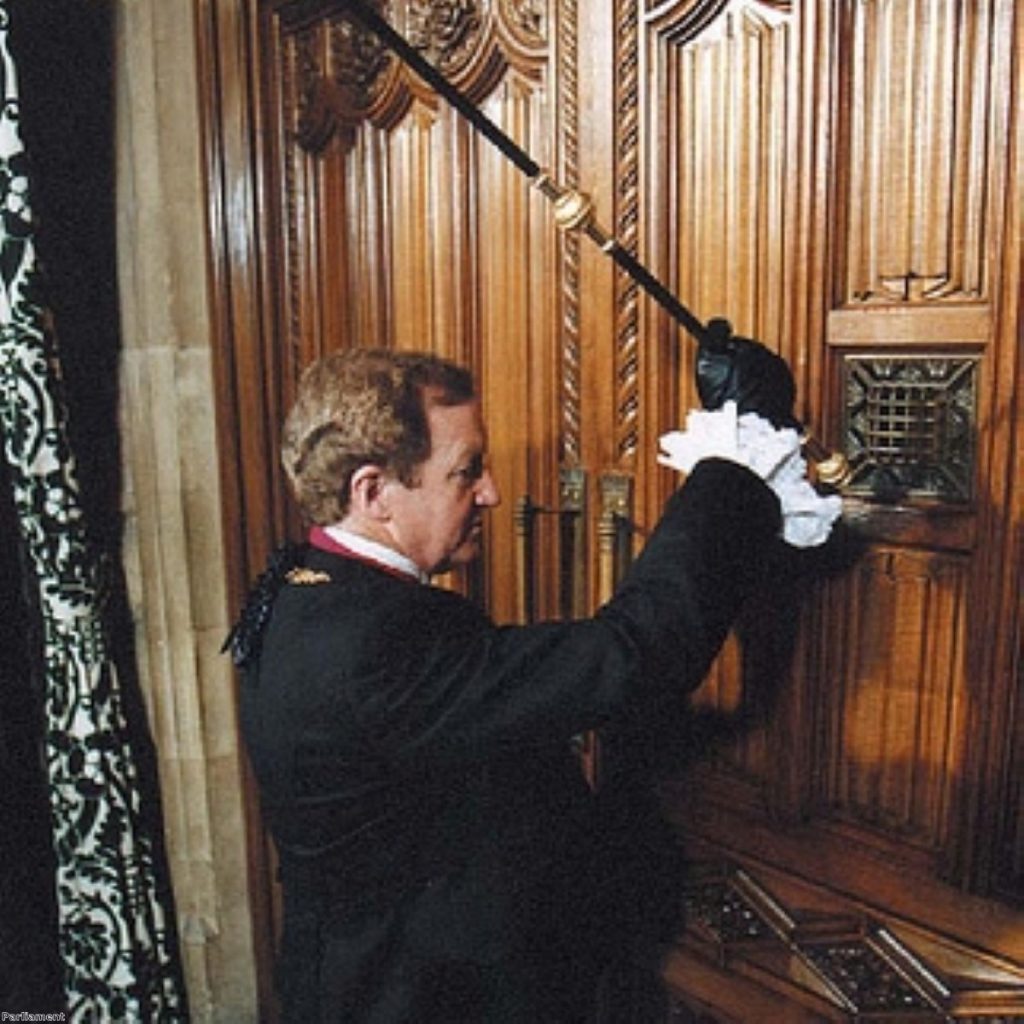The Tories’ Lords review will make parliament even less accountable
No sooner had the Lords voted down the government's cuts to tax credits than Downing Street was promising a 'rapid review' of the chamber's powers. There are no details yet, but we can be fairly confident that it will entail removing the Lords' right to veto statutory instruments.
As I wrote yesterday, the Lords did not break any rules. Constitutionally, they cannot rebel against policies in the governing party's manifesto and they cannot rebel against financial bills. But the tax credits cut was not in the manifesto and in fact was the subject of highly misleading comments by the prime minister during the election campaign. And it did not appear in a bill but in a statutory instrument, a mechanism designed to speed minor changes in law through parliament with a minimum of debate, and now regularly misused by successive governments.
This morning, Boris Johnson and Chris Grayling either lied about what had happened or demonstrated that they were profoundly ignorant of the political stand-off they were commenting on. Johnson said:
"I think the House of Lords is in grave danger of pushing its luck, frankly. This is not what they are there to do. They are a revising chamber. They are not there to throw out financial bills from the elected House of Commons."
But Johnson is factually, and therefore logically, wrong. It was not a bill. It was a statutory instrument. And given that these instruments are increasingly used as a way of sidestepping scrutiny, the Lords are very much doing their job as a revision chamber by debating and occasionally vetoing them.
Grayling was asked by the Today programme if the government had made a mistake by using a statutory instrument rather than a government bill. He replied:
"I don't think for a moment that the Lords would have done something different yesterday if it had been an amendment to a bill, or a bill, rather than a statutory instrument … I think this is all about Labour and Liberal Democrat peers in the Lords who are unhappy that they lost the election, the Liberal Democrats, who have eight MPs and 100 peers, deciding they want to wreck the government's programme."
Grayling is either lying or he does not understand how the constitution works, which is troubling given that he is leader of the House of Commons. Peers cannot vote down a finance bill. It is not in their power to do so. What he said was nonsense.
This review has been initiated by ministers who either do not understand or will not tell the truth about what happened.
"There will have to be change," Grayling said. "Of course there will have to be change." That change is likely to be that the Lords will have their power to vote down statutory instruments removed, thereby allowing governments even further powers to sneak through legislation with a minimum of scrutiny. It is unlikely, as some of the more eager electoral reformers seem to wish, to be a review which introduces an elected second chamber or restricts the government's ability to stuff it with cronies.
The Tories experienced an outright civil war over House of Lords reform last parliament. David Cameron will not be keen to risk that again. But they have a far stronger track record on using contrived political rows to strip away systems of accountability. They're doing it on trade unions, with the bill currently before parliament proposing policies more suited to a Latin American dictator than a European democracy. They did it on judicial review, in which Grayling made up all sorts of nonsense to justify an attack on citizens' rights to challenge authorities in the courts.
To get an impression of this government's commitment to democratic principle, one need only look at the Lords rebellion which may take place this afternoon over electoral registration. The Tory plan to swap household registration for individual registration will take millions off the electoral roll. They will disproportionately be young, poor, and ethnic minorities. Students, or those who move from house to house in the private rental market, or those who are newcomers to the UK will be the big losers. Coincidentally or not, they are not typical Tory voters.
That data will feed into the constituency boundary review. The distorted view of Britain it creates, one in which the poor and the marginalised are silenced, will be embedded into the very structure of our democratic process. This is not the behaviour of a government which cares about accountability. It's the behaviour of a government which wants to expand its powers.
The Lords review will not be about making it more democratic. It'll be about making the government more powerful.



